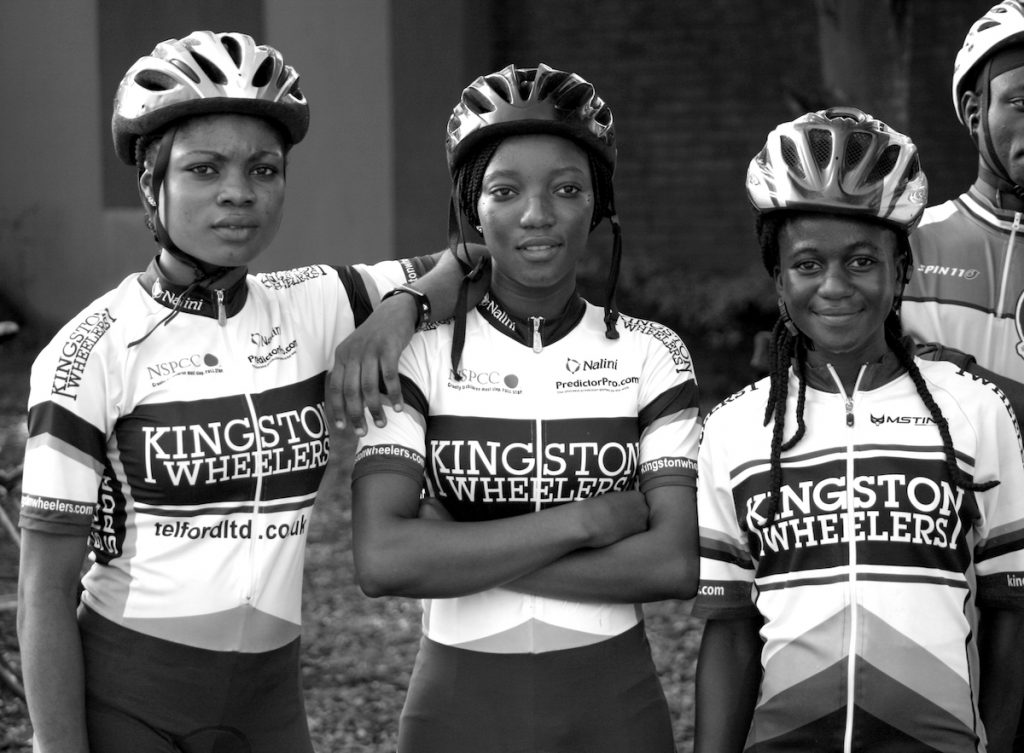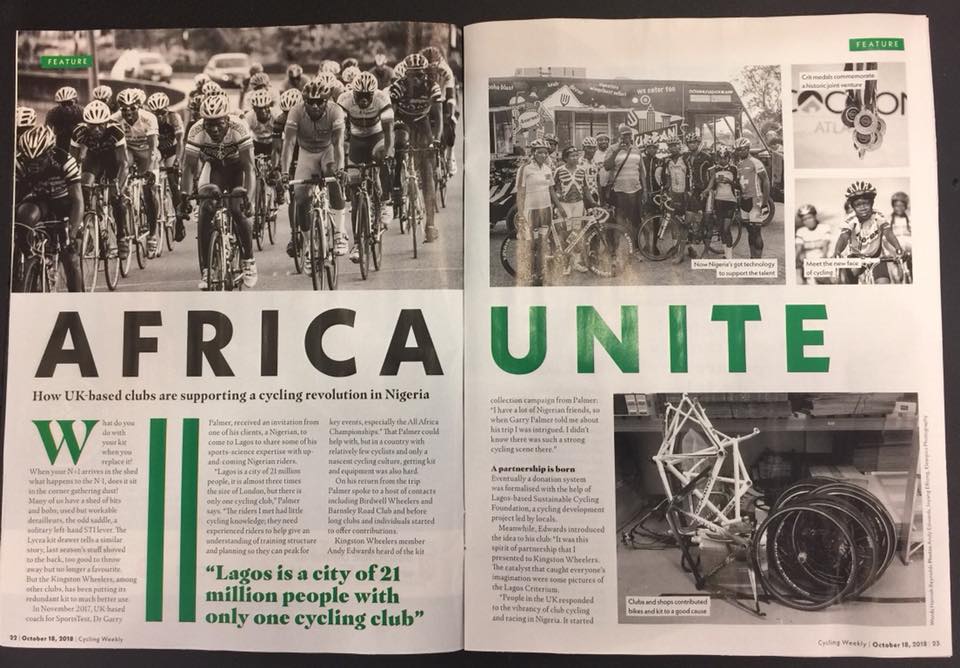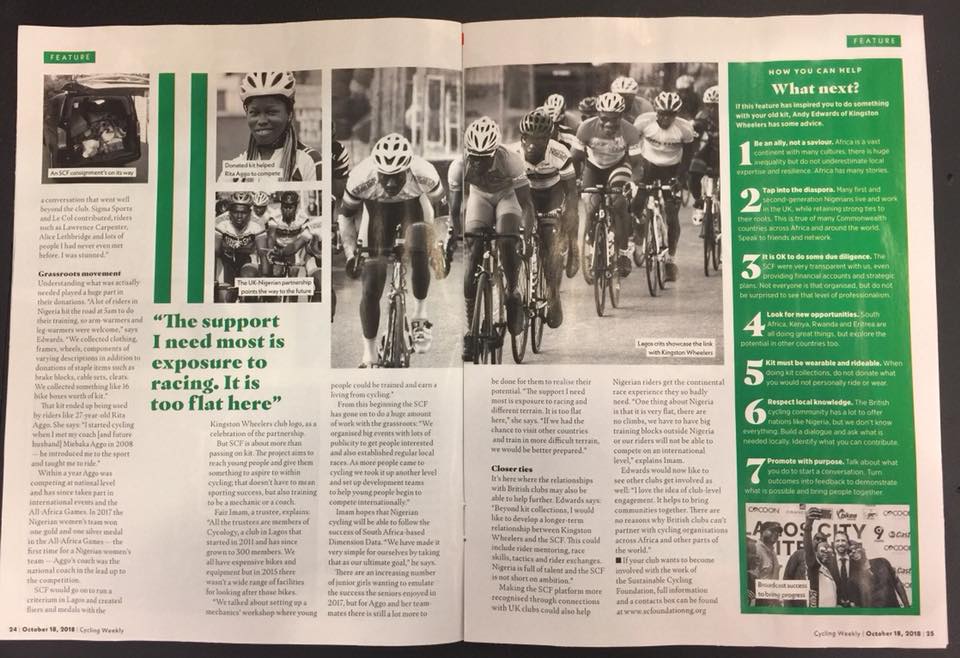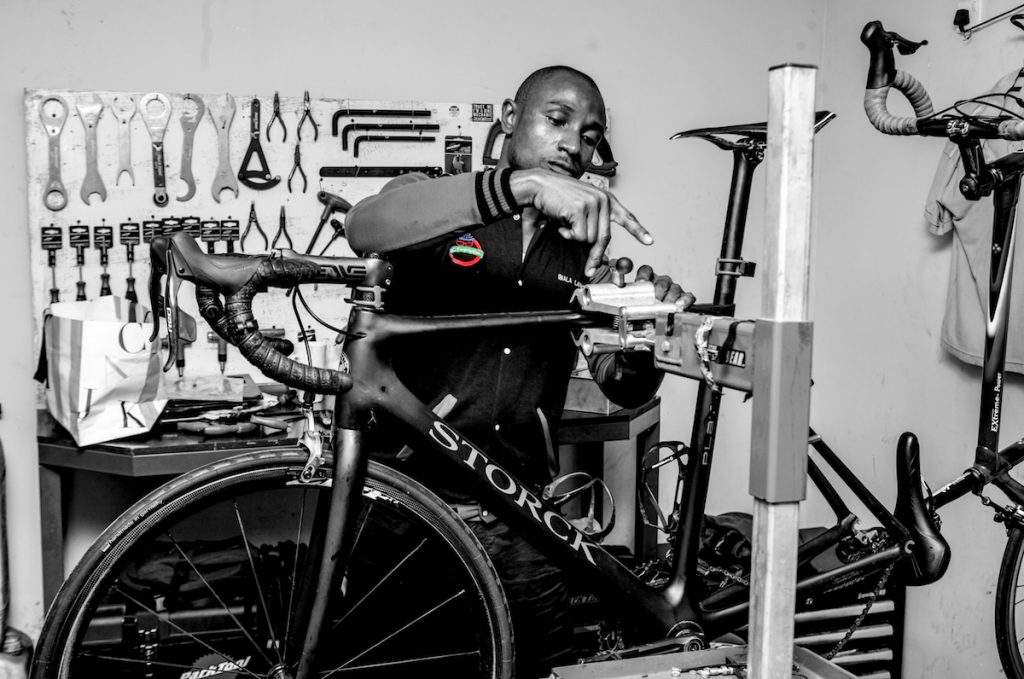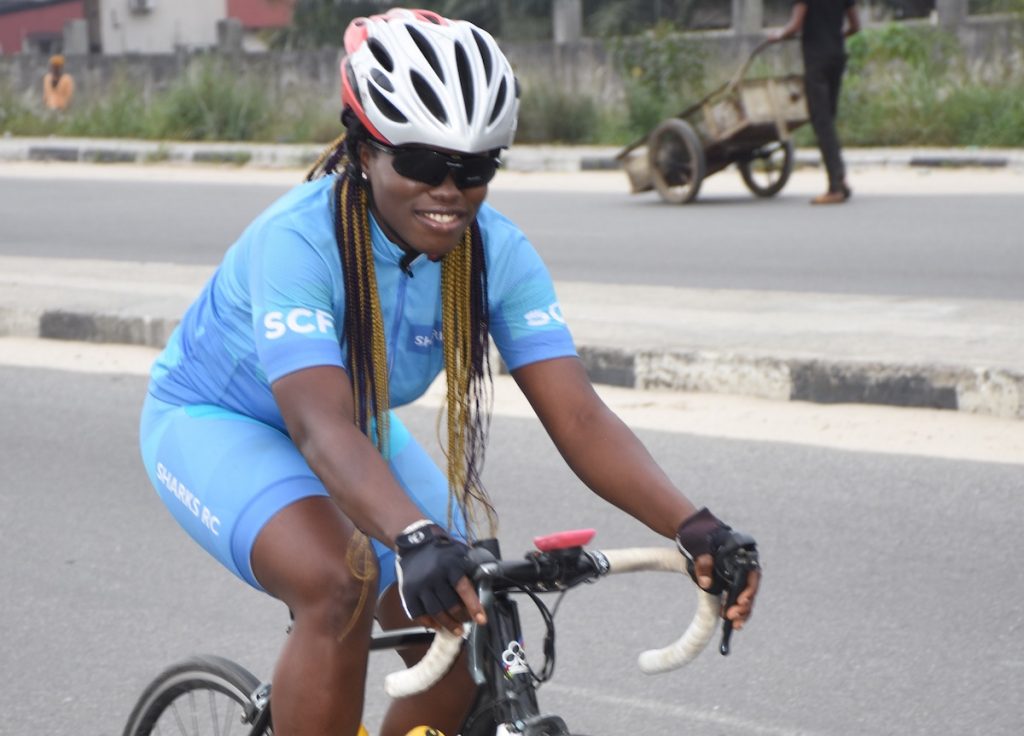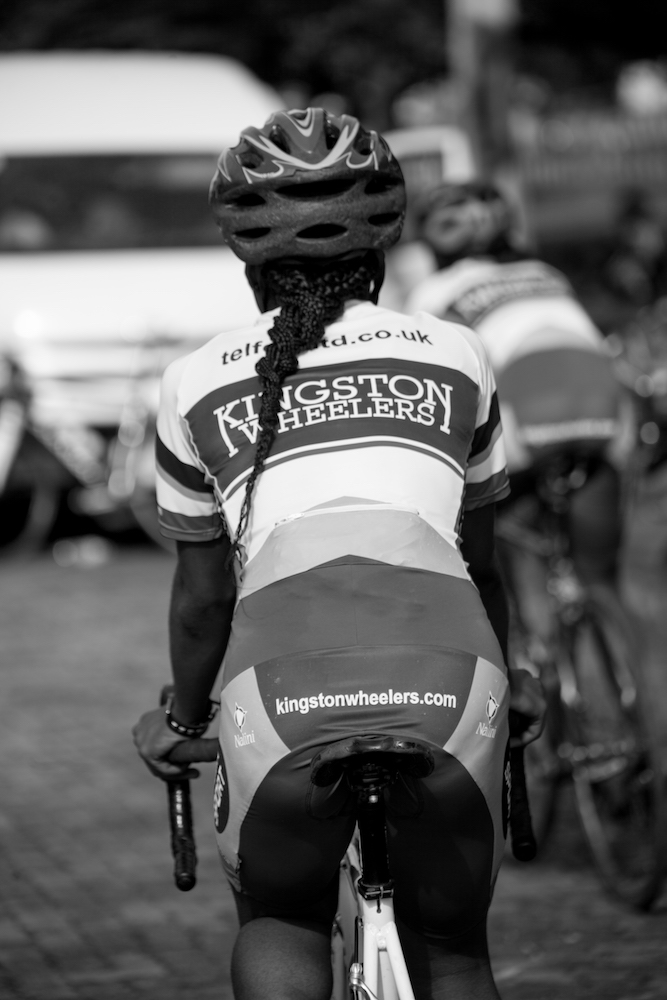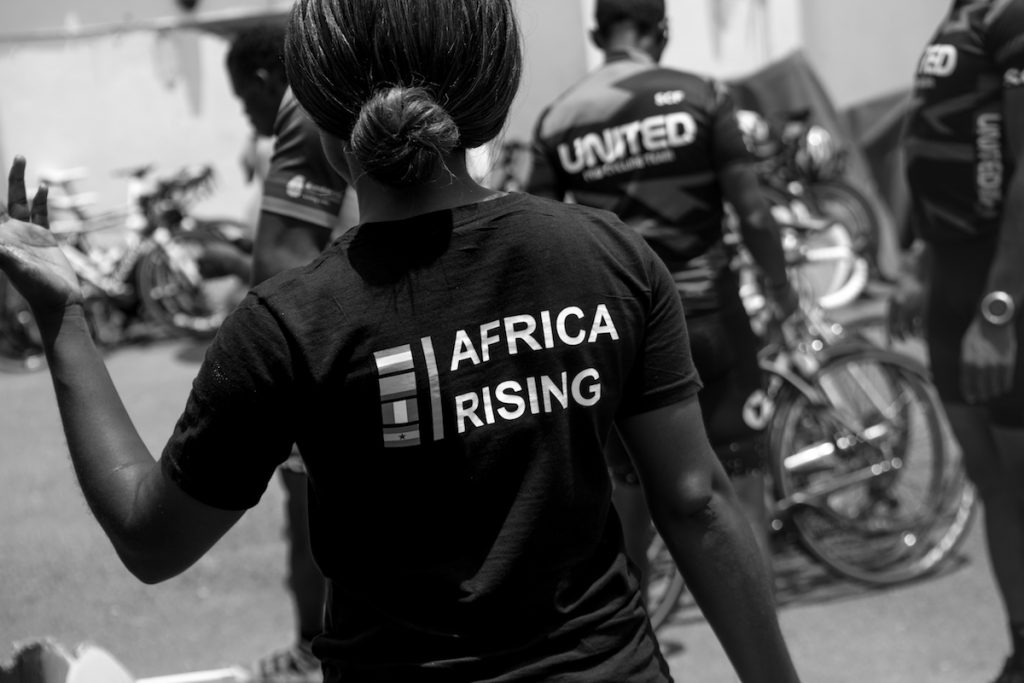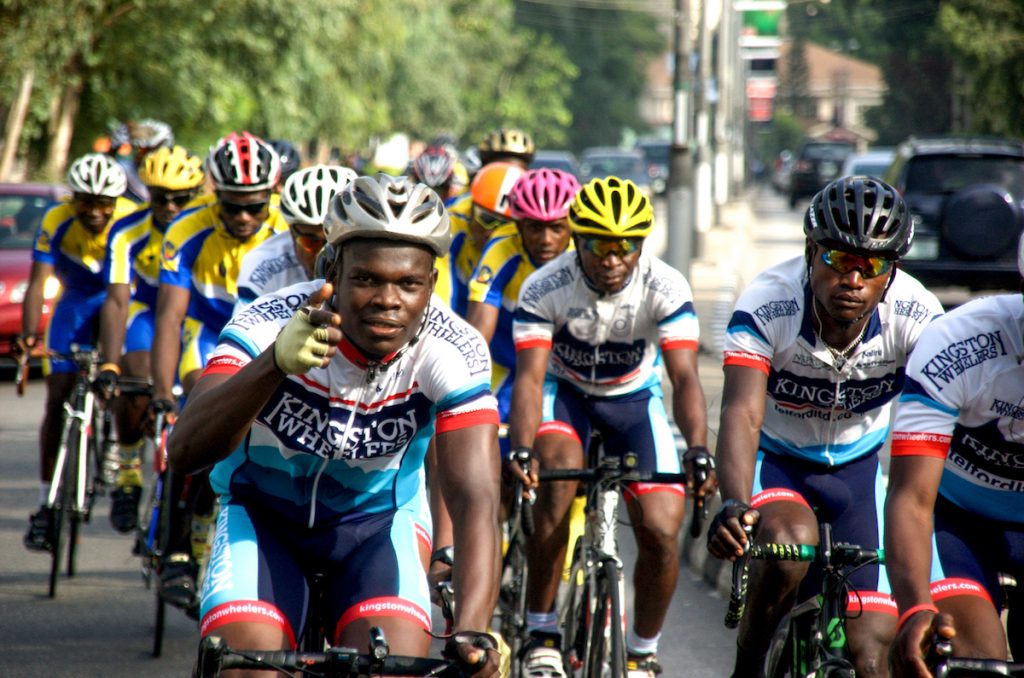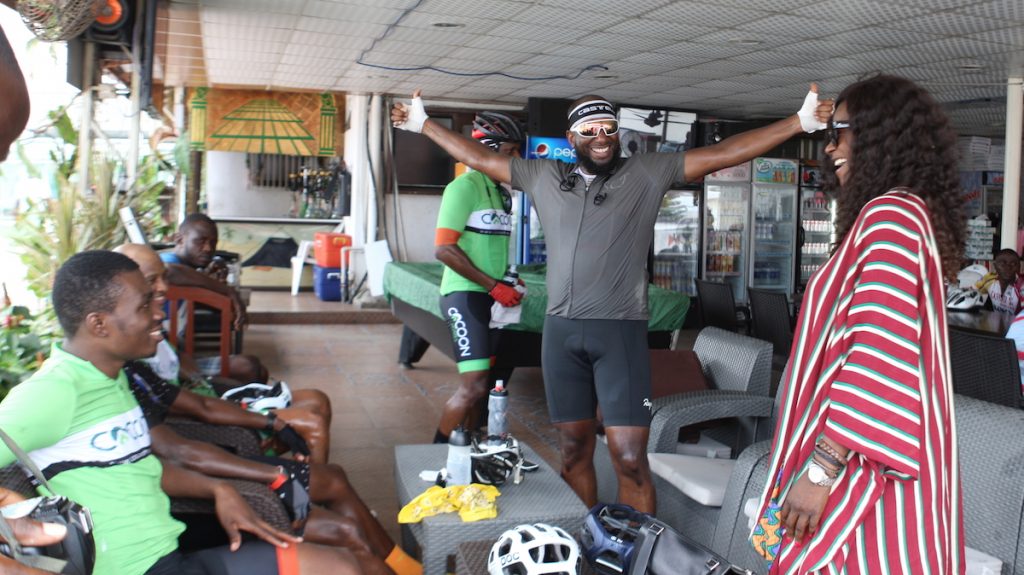Earlier this year I led an initiative through the cycling club of which I am a member, Kingston Wheelers, to undertake a kit collection for the Sustainable Cycling Foundation in Nigeria. The collection garnered an overwhelmingly positive response in terms of the amount of kit collected. This came not only from within the club, but from the broader cycling community.
Cycling Weekly has covered the story. Their article gives a great overview of the collection, but, even more importantly, the amazing work of Sustainable Cycling Foundation. You can read the full article as a PDF, here: SCF Nigeria Kingston Wheelers Africa feature.
My main contact at the SCF is Iboroma Akpana, a Harvard educated corporate lawyer with his own law firm in Lagos and Abuja. Iboroma travels extensively and while he was in town for Ride London last year we got together for a Regents Park ride and Look Mum No Hands coffee stop. This is where we hatched the plan.
Kit collections are not a new thing. Former pro Matt Brammier has been active in this area and it was Garry Palmer of Sportstest who introduced me to Iboroma in the first place, has organised several kit collections. Allied to organising a kit collection, I wanted to build a narrative about cycling in Nigeria and across Africa.
This meant informing the UK cycling community about the opportunities and what is already being achieved not only in Nigeria, but also across Africa. Even to this day, when people think of Africa they think of a single story that is fed to us by the media. The reality is far more impressive that we are often led to believe. Poverty exists in Africa, but African nations are not defined by poverty.
There is also organisation, entrepreneurialism, resilience, ingenuity and, fundamentally, talent. The SCF was formed by a number of prominent members of Lagos based cycling club Cycology. The club has in excess of 300 members and counting and the socio-economic profile of its members is probably not vastly different to Kingston Wheelers. Through the SCF, they are building the sport of cycling in Nigeria pretty much from scratch.
The SCF not only organises their own kit collections, but tap into their network of friends, including Kingston Wheelers. They fund training for riders to develop careers as mechanics and coaches/ personal trainers, organise races, training, nutrition and for the more advanced riders the opportunity to ride in pan-African events.
Moreover, the SCF has been very active in encouraging women’s cycling in way we can probably learn from in the UK. Not only is there a strong network of women at club level, the Nigerian Ladies team won the gold medal in the TTT at the All African Games beating the formidable South African team into second place. Rita Miebaka Aggo (above), one of their prominent riders, was interviewed for the Cycling Weekly article.
In pulling all this together, there was a conscious effort to avoid “white saviour syndrome”, an accusation levelled at Comic Relief and Bob Geldof amongst others. I bug an awful lot of people with the work of Chimamanda Ngozi Adichie, the acclaimed Nigerian novelist. In her seminal TED Talk The Danger Of A Single Story, Chimamanda confronts the single story narrative that is often applied to “Africa” and instead she presents a more complex and diverse reality. If you watch Chimamanda’s TED talk, you will witness an important touchstone for this initiative:
Not only did we as Kingston Wheelers collect an awful lot of kit, but we did so in a genuine spirit of partnership with the SCF and with a strong grasp of the needs of the Nigerian cycling community. We were allies, not saviours.
Hopefully this will be the start of an ongoing relationship that could take in more collections, rider exchanges, sponsoring and supporting local race teams in Nigeria in addition to rider mentoring and coaching.
Included in the article are some suggestions for UK based cycling clubs who are interesting in putting together an initiative like ours, it is worth restating here:
HOW CAN PEOPLE ACT ON WHAT THEY HAVE READ?
1) Be an ally, not a saviour. Africa is a vast continent with many cultures, there is huge inequality but do not underestimate local expertise and resilience. Africa has many stories.
2) Tap into the diaspora. Many first and second generation Nigerians live and work in the UK, while retaining strong ties to their roots. This is true of many Commonwealth countries across Africa and around the world. Speak to friends and network.
3) It is OK to do some due diligence. The SCF were very transparent with us, even providing financial accounts and strategic plans. Not everyone is that organised, but do not be surprised to see that level of professionalism.
4) Look for new opportunities. South Africa, Kenya, Rwanda and Eritrea are all doing great things, but explore the potential in other countries too.
5) Kit must be wearable and rideable. When doing kit collections, do not donate what you would not personally ride or wear.
6) Respect local knowledge. The British cycling community has a lot to offer nations like Nigeria, but we don’t know everything. Build a dialogue and ask what is needed locally. Identify what you can contribute.
7) Promote with purpose. Talk about what you do and start a conversation. Feedback outcomes to demonstrate what is possible and bring people together.

